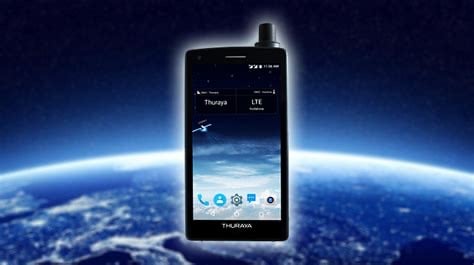Are Satellite Phones Private & Secure?
While traditional cellular networks offer widespread connectivity, they are not without vulnerabilities. In this landscape, satellite phones have emerged as an alternative, providing communication capabilities in remote or inaccessible areas. However, the question remains: Are satellite phones truly secure and private?


In an era where digital communication is omnipresent, concerns about the security and privacy of our personal data have reached new heights. While traditional cellular networks offer widespread connectivity, they are not without vulnerabilities. In this landscape, satellite phones have emerged as an alternative, providing communication capabilities in remote or inaccessible areas. However, the question remains: Are satellite phones truly secure and private?
Satellite phones operate by connecting to satellites orbiting the Earth, bypassing the need for terrestrial infrastructure. This allows users to make calls, send messages, and access data from virtually anywhere on the planet, making them invaluable tools for adventurers, remote workers, and emergency responders. Yet, the very nature of satellite communication raises questions about security and privacy.
One of the key advantages touted by proponents of satellite phones is their resilience to traditional forms of communication interception. Unlike cellular networks, which rely on terrestrial infrastructure vulnerable to physical tampering or cyberattacks, satellite communication is inherently more difficult to intercept. This makes satellite phones appealing for users operating in environments where traditional communication channels may be compromised or unavailable.
However, while satellite communication may offer greater resilience to interception, it is not immune to security risks. Like any wireless communication technology, satellite phones are susceptible to eavesdropping and interception by skilled adversaries with the appropriate equipment and expertise. Additionally, satellite signals can be vulnerable to jamming and spoofing attacks, which can disrupt communication and compromise privacy.
Moreover, the centralized nature of satellite communication infrastructure poses its own set of security challenges. Satellite networks are typically operated by a small number of companies or government entities, raising concerns about the potential for unauthorized access to sensitive communications data. While these operators implement security measures to protect against unauthorized access, the centralized nature of satellite networks means that a single breach could have far-reaching implications.
Privacy is another critical consideration when evaluating the security of satellite phones. While satellite communication may offer greater privacy in terms of location tracking compared to cellular networks, users should be aware that their communications data may still be subject to monitoring and surveillance by government agencies or other entities. Additionally, satellite phone operators may collect metadata associated with user communications for billing and network management purposes, raising concerns about data privacy and surveillance.
To mitigate security and privacy risks associated with satellite phones, users can take several precautions. Encrypting communications data end-to-end using secure protocols can help protect against interception and eavesdropping. Additionally, implementing strong authentication mechanisms and regularly updating device firmware can help defend against unauthorized access and exploitation of vulnerabilities.
Furthermore, users should be mindful of the limitations of satellite communication technology and avoid transmitting sensitive or confidential information over insecure channels. Employing additional security measures such as virtual private networks (VPNs) or secure messaging apps can provide an extra layer of protection for sensitive communications.
In conclusion, while satellite phones offer unique capabilities and advantages in terms of connectivity and resilience, they are not without security and privacy risks. Users should be aware of the potential vulnerabilities associated with satellite communication and take appropriate precautions to safeguard their communications data. By understanding the security and privacy implications of satellite phones, users can make informed decisions about when and how to use these devices effectively and responsibly.
